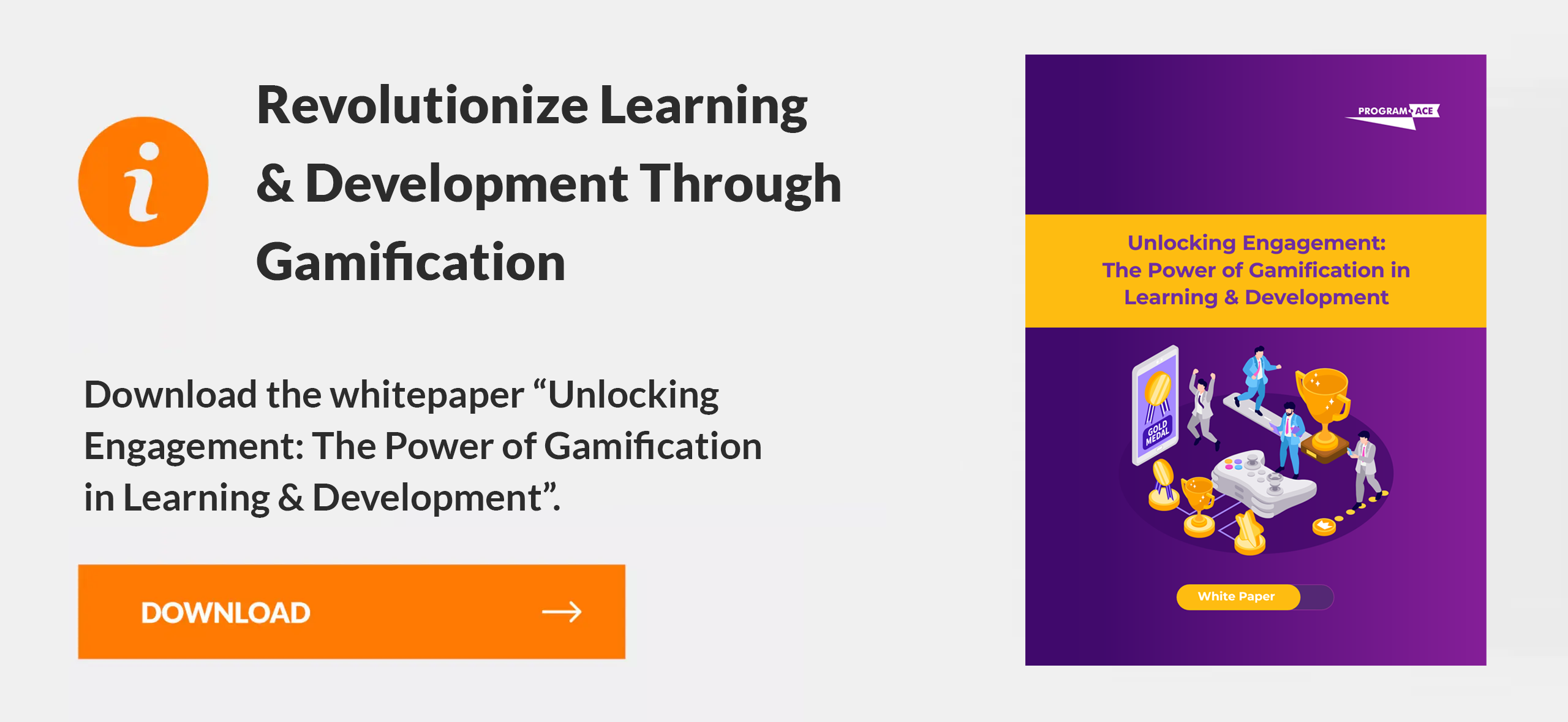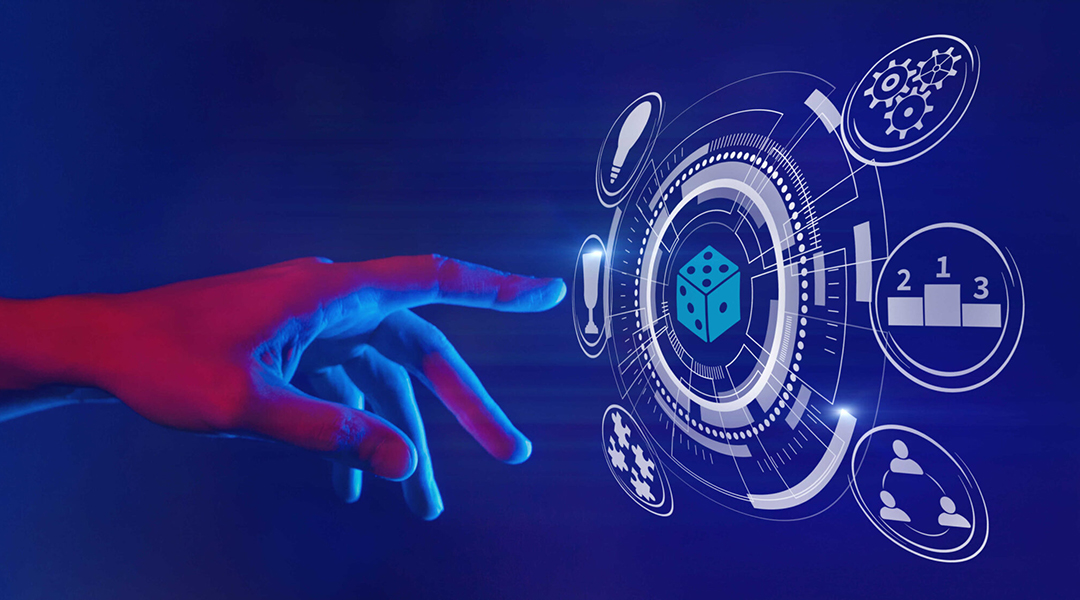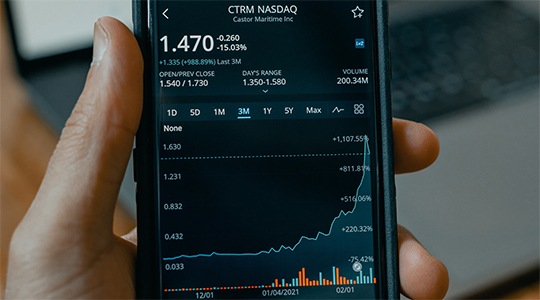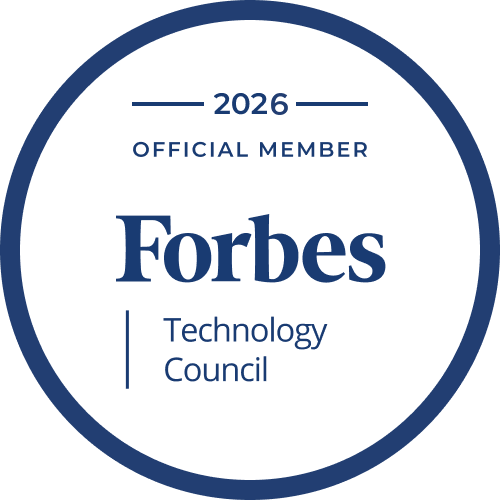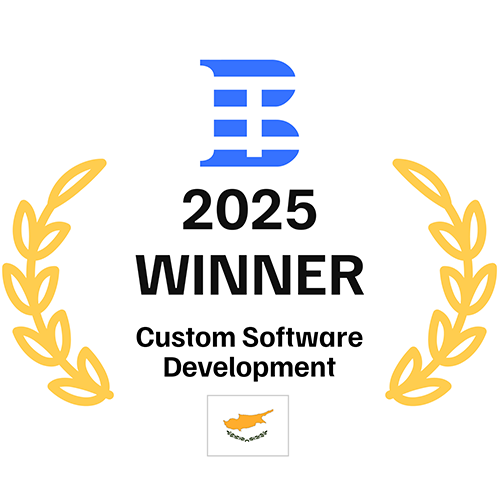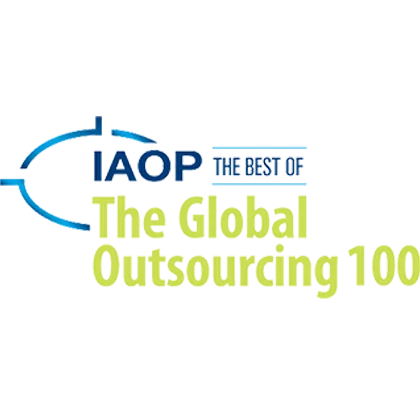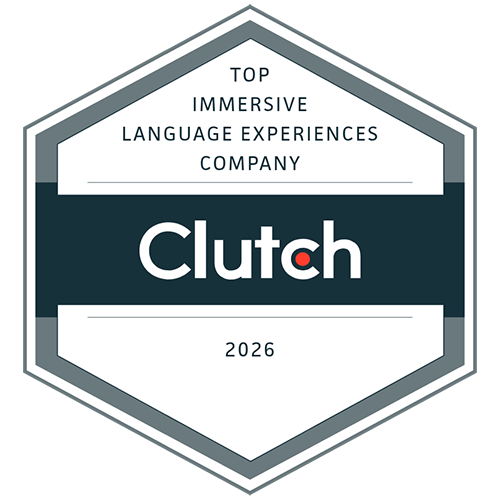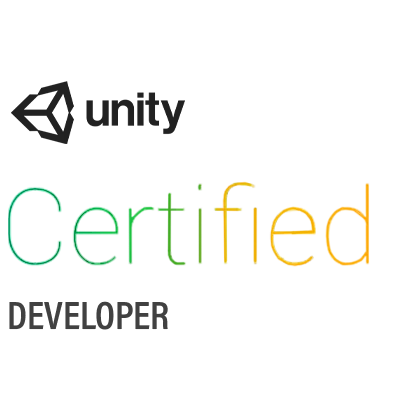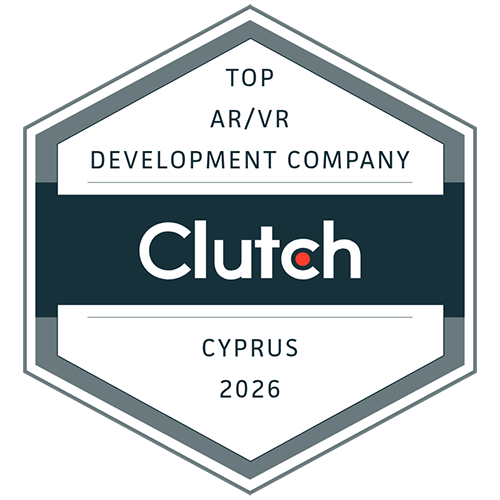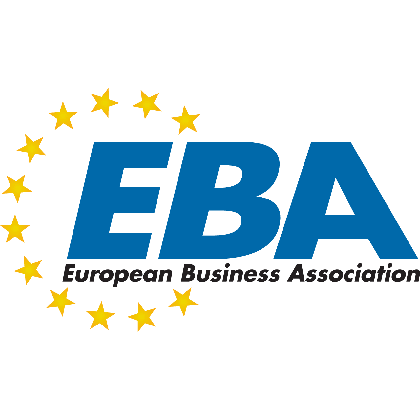Human Resources teams face constant pressure to improve recruitment accuracy, employee engagement, and retention. Traditional tools rarely capture real behavioral patterns or motivation, which is why HR professionals are increasingly interested in gamification development services. A gamification platform applies structured game mechanics to assessments, training, and performance tracking so that measurable outcomes can be collected and analyzed.
A successful HR gamification platform begins with clarity about business objectives. Reducing hiring bias, shortening candidate screening time, or improving long-term staff retention are practical goals that gamification platforms can address. The benefit comes from combining proven psychological models with digital tools that highlight individual strengths and decision-making styles.
When HR leaders consider how to build a gamification platform, they must evaluate not only features such as applicant tracking or reporting but also how candidate and employee data will support future planning. Investing in gamification development services yields both functional software and a tailored design that aligns with organizational requirements.
Introduction to HR Gamification
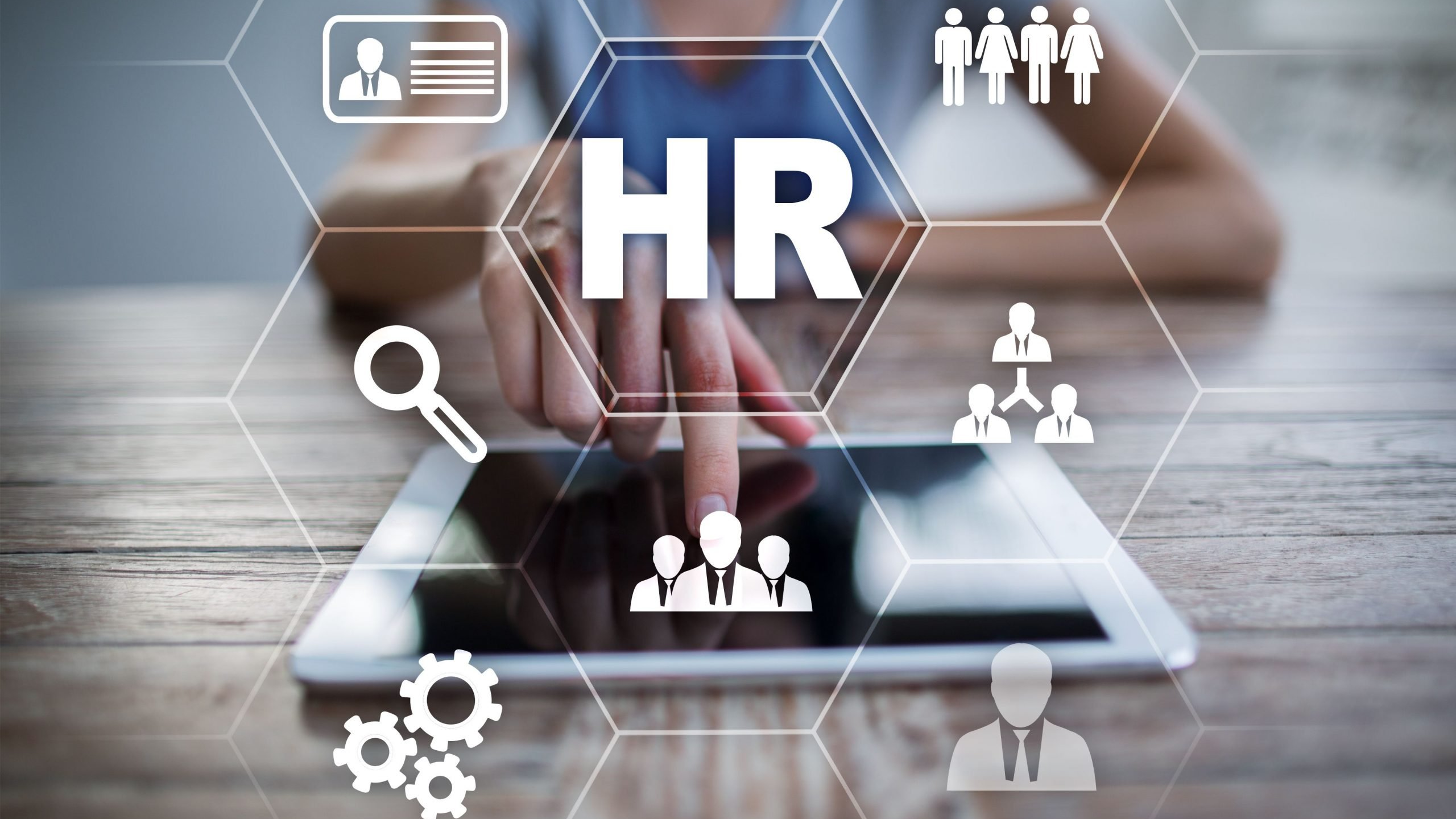
HR departments increasingly face the challenge of evaluating candidates and retaining employees with precision. Gamification provides measurable insights by applying structured mechanics to recruitment, training, and performance management. Unlike generic tests or repetitive surveys, a gamified approach highlights skills, motivation, and decision-making through interactive tasks.
Organizations can reduce bias, shorten screening processes, and improve employee engagement using tailored digital solutions. Our ultimate guide to gamification in business initiatives shows how companies integrate these methods to achieve accurate results. When platforms are designed carefully, they deliver reliable data to HR managers and meaningful experiences to candidates. Businesses that apply HR gamification create systems that directly connect employee behavior to organizational goals.
What Is an HR Gamification Platform?
An HR gamification platform is a structured system that introduces game mechanics into hiring, training, or workforce development. The platform does not simply entertain; it collects data that supports evidence-based decisions. There are various types of gamification, which can range from skill-based assessments to interactive training modules or performance tracking dashboards. Unlike informal tools, a platform integrates with existing HR systems and delivers consistent measurement. Companies rely on gamification platforms to identify soft skills, evaluate problem-solving, and strengthen employee motivation.
Definition and Core Purpose
An HR gamification platform delivers value through several practical functions that go beyond basic hiring or training tools. Employers use such systems to evaluate both technical and soft skills in real time.
The main reasons organizations adopt them can be summarized in clear goals:
- Improve assessments. Interactive challenges reveal behavior and performance under pressure.
- Support development. Progress tracking encourages ongoing learning and career growth.
- Generate reports. Data is automatically transformed into structured feedback for HR managers.
- Increase retention. Employees remain engaged when achievements and milestones are visible.
Each of these purposes highlights why gamification platforms differ from ordinary recruitment methods. Instead of capturing surface-level details, they reveal how individuals think, react, and adapt in professional contexts.
Differences Between Gamification Apps and Traditional HR Tools
Evaluating how gamification apps differ from conventional HR tools becomes easier when the core functions are placed side by side. The contrast is not only in appearance but also in the depth of insights provided.
| Aspect | Traditional HR Tools | Gamification Apps |
| Data type | Collect resumes, surveys, and static records. | Track live performance, decision-making, and behavioral traits. |
| Engagement | Limited interaction with candidates or employees. | Continuous motivation through tasks, feedback, and progress scoring. |
| Analysis | Requires manual review and subjective interpretation. | Generates automated analytics with measurable outcomes. |
| Focus | Emphasizes qualifications and past achievements. | Highlights adaptability, collaboration, and problem-solving skills. |
| Impact | Provides surface-level information for HR decisions. | Supplies actionable insights that guide long-term workforce strategies. |
Overall, the comparison makes it clear that gamification apps are not replacements for traditional tools but enhancements that extend their functionality and improve decision-making accuracy.
Common Misconceptions About Gamification in HR
Gamification in HR often gets misunderstood, leading to hesitation or poor implementation. Many assume that gamified approaches are trivial or designed only to entertain. In reality, gamified simulation can deliver measurable outcomes that directly improve recruitment and training.
Several misconceptions continue to circulate:
- Only for young employees. Gamification can engage multiple age groups when scenarios reflect real tasks.
- Purely entertainment. The purpose is assessment and skill measurement, not distraction.
- Too expensive. Modular gamification development allows phased investment at reasonable costs.
- Unreliable results. When simulations are tied to validated psychological models, data is precise and actionable.
- Difficult to integrate. Most modern gamification platforms connect with applicant tracking systems and HR software.
Correcting these misunderstandings is essential for companies considering gamification. How to use gamified simulation effectively becomes clear once these misunderstandings are corrected: align scenarios with business goals, validate tasks with expert input, and apply the results to real HR decisions.
How to Build an HR Gamification Platform Step by Step
Constructing a gamification platform requires more than adding playful elements to HR processes. Each stage should be aligned with measurable outcomes. First, HR leaders must define the problems to solve, such as reducing hiring bias or improving training retention.
Next, the target audience is identified to ensure relevance and acceptance. Features are then mapped to those objectives, including assessment tasks, progress tracking, and analytics. Finally, the roadmap must cover design, testing, and integration with existing HR tools. A clear sequence ensures the platform delivers reliable value instead of superficial engagement.
1. Define Business Goals First
Every HR gamification platform starts with a clear purpose. Without defined business goals, gamification risks turning into an expensive distraction. Companies must decide whether they want to shorten recruitment cycles, reduce bias, evaluate soft skills, or improve training retention. A structured objective creates the foundation for both design and implementation.
Concrete examples help illustrate the value. A retail company may focus on reducing time-to-hire during seasonal peaks, while a tech startup may prioritize assessing problem-solving skills under time pressure. Goals should be measurable so progress can be tracked. Aligning gamification features with those priorities ensures accurate outcomes.
When objectives are vague, teams waste resources developing irrelevant scenarios. By contrast, specific goals lead to platforms that directly impact HR performance. Goal-setting also influences budget planning and the scope of gamification development services, making it a non-negotiable first step.
2. Identify the Target Audience
Gamification design cannot be universal; it must reflect the audience that will interact with it. Different generations exhibit distinct preferences, which directly influence the structure of a gamification platform.
- Millennials. Motivated by visible progress and career-related rewards. They value efficiency and respond well to structured tasks with measurable outcomes.
- Gen Z. Expect interactive, mobile-first tools that deliver instant feedback. Competitive features such as leaderboards or timed challenges often sustain their interest.
- Older candidates. More responsive to practical simulations that mirror real job tasks. They tend to value reliability and clear instructions over entertainment.
Beyond generational factors, behavioral analysis is essential. Companies should investigate how employees use digital tools, what motivates them most, and whether they prefer individual achievements or collaborative tasks. For example, a sales team may engage more with score-based challenges, while healthcare staff might respond better to cooperation-focused activities.
Designing features that align with audience expectations ensures reliable participation and yields accurate data. Without tailoring, engagement levels drop, and the platform risks failing to deliver measurable HR results.
3. Align Player Goals with Business Objectives
Gamification is most effective when participants' personal motivations are aligned with measurable business outcomes. Every player type has a preferred way of engaging, and these tendencies can be leveraged to meet HR objectives.
Linking these player motivations to business priorities creates a dual benefit. Employees or candidates feel rewarded through recognition and achievement, while employers collect evidence-based insights into workplace behavior. For instance, competitive challenges provide data on decision-making under stress, and collaborative tasks reveal interpersonal effectiveness. Without alignment, gamification may entertain but fail to improve HR outcomes.
4. Map Out the Development Roadmap
A gamification platform requires structured planning so every stage leads to measurable results. A clear roadmap helps avoid delays, overspending, and incomplete solutions.
Typical development passes through several phases:
- Requirements gathering. Identify goals, target audience, and essential features.
- Design phase. Create UX flows, interface concepts, and gamification mechanics.
- Development. Build modules such as applicant tracking, reporting, and simulations.
- Testing. Conduct pilot runs to evaluate system accuracy and user engagement.
- Deployment. Integrate the platform with HR processes and begin active monitoring.
Each step builds on the previous one, ensuring the platform is functional, user-friendly, and aligned with organizational priorities. Companies that skip phases risk poor adoption or unreliable results, which can undermine investment.
Let professionals build an effective HR gamification platform for you.
Understanding the Psychology Behind HR Gamification
Gamification relies on behavioral psychology to ensure tasks reflect how people think and act. Platforms that incorporate psychological models avoid superficial engagement and deliver measurable outcomes. By analyzing player types and personality patterns, HR managers can predict performance, adaptability, and motivation. Applying these models strengthens recruitment accuracy and employee retention because data is rooted in observable behavior rather than assumptions.
Player Types in the Gaming World
Game researchers often categorize users into four distinct player types, each with a unique interaction style. HR gamification platforms employ a similar structure to design scenarios that reveal employee behavior and skills.
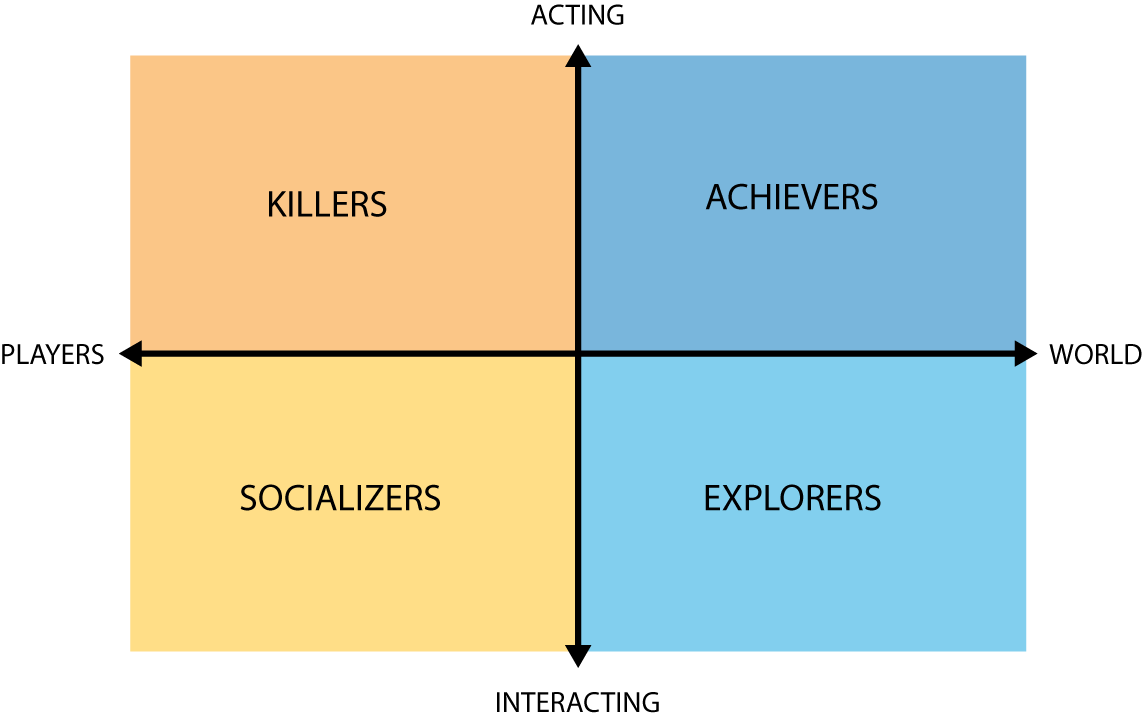
- Killers. Motivated by competition and dominance. In HR, they respond well to leaderboards or tasks where performance is ranked.
- Achievers. Seek goals and measurable rewards. They thrive in simulations with milestones, making them ideal for problem-solving tests.
- Explorers. Enjoy discovery and experimentation. Challenges that allow multiple solutions highlight adaptability and curiosity.
- Socializers. Value interaction and cooperation. Team-based simulations demonstrate communication and collaboration skills.
A balanced platform uses tasks that appeal to all four types, ensuring a comprehensive assessment of diverse candidate groups.
Temperaments and Personality Patterns
Psychologist David Keirsey outlined four personality temperaments that align closely with workplace behavior. Gamification integrates these patterns to create tasks that measure soft skills effectively.
- Artisan. Tactical, pragmatic, and action-focused individuals. Simulations requiring quick responses or practical decisions identify this group.
- Guardian. Organized and detail-oriented. Scenarios that test consistency, reliability, and adherence to rules highlight their strengths.
- Rational. Strategic and future-oriented. Complex challenges that require planning or innovation bring out their abilities.
- Idealist. Relationship-driven and imaginative. Collaborative activities reveal their diplomatic and empathetic qualities.
By embedding tasks based on these categories, gamification platforms allow HR managers to see more than technical skills. They expose behavioral tendencies that traditional interviews or resumes cannot reveal, enabling more accurate candidate selection and employee development.
Why Psychology Is Critical for HR Gamification Success
Gamification platforms succeed only when psychology is treated as the foundation rather than an afterthought. Psychological models ensure that tasks measure authentic behavior instead of surface-level reactions. Without this grounding, outcomes risk being unreliable.
Player types and temperaments show how different individuals respond to challenges, rewards, and collaboration. By incorporating them, HR managers can build platforms that assess communication, adaptability, and motivation in realistic contexts. For example, a scenario testing collaboration not only trains employees but also records how effectively they exchange information under pressure.
Another reason psychology is vital lies in retention. Employees remain engaged when challenges reflect their motivational drivers. Employers benefit at the same time because data is both meaningful and predictive. By designing with psychology at the center, HR gamification avoids becoming a novelty and evolves into a tool that provides measurable improvements in recruitment and workforce management.
To make the overlap clearer, the two main models can be viewed together. Player types focus on how people interact with systems, while temperaments explain underlying personality drivers. Used in combination, they offer HR managers a complete framework for designing effective gamification platforms.
| Model | Categories | Main Traits | HR Application |
| Player types | Killers, Achievers, Explorers, Socializers | Competition, achievement, discovery, interaction | Leaderboards, milestones, open-ended problem solving, collaboration tasks |
| Temperaments | Artisan, Guardian, Rational, Idealist | CPragmatic, organized, strategic, empathetic | Quick-response scenarios, rule-based tasks, innovation challenges, team exercises |
Core Features of HR Gamification Platforms
An HR gamification platform must integrate functions that simplify recruitment, deliver accurate assessments, and support HR decision-making. Beyond entertainment, its purpose is efficiency and insight. Core features provide structure for hiring, evaluation, and employee management. Each module contributes to reducing manual effort, improving engagement, and generating reliable data for long-term workforce planning.
Applicant Tracking System (ATS)
An applicant tracking system (ATS) serves as the backbone of an HR gamification platform. It functions much like a customer relationship management system, but for recruitment. Candidate information is stored, organized, and made accessible in real time.
Some functions usually include:
- Profile management. Create and update candidate records in one place.
- Search and filtering. Identify applicants with specific skills or qualifications quickly.
- Workflow tracking. Monitor application progress from submission to final decision.
- Communication. Automate emails, reminders, and notifications for candidates.
By combining ATS features with gamification, HR teams can manage both logistics and engagement. The system ensures that no candidate is overlooked while maintaining a structured and transparent process.
Gamified Skill Assessment Tests

Skill assessments transform when game mechanics are applied. Instead of generic test tasks, candidates face interactive challenges designed to evaluate real behavior. Gamified simulations highlight soft skills such as communication and teamwork alongside technical ability.
Typical components are:
- Scenario-based tasks. Replicate real workplace challenges.
- Clear instructions. Ensure candidates understand objectives.
- Feedback system. Provide instant responses to actions.
- Data-driven evaluation. Generate reports on accuracy, speed, and decision-making.
Gamified assessments reduce bias and deliver insights that resumes or interviews cannot capture. For employers, the benefit lies in measurable outcomes; for candidates, the experience feels engaging and fair.
Interview Scheduling and Offer Management
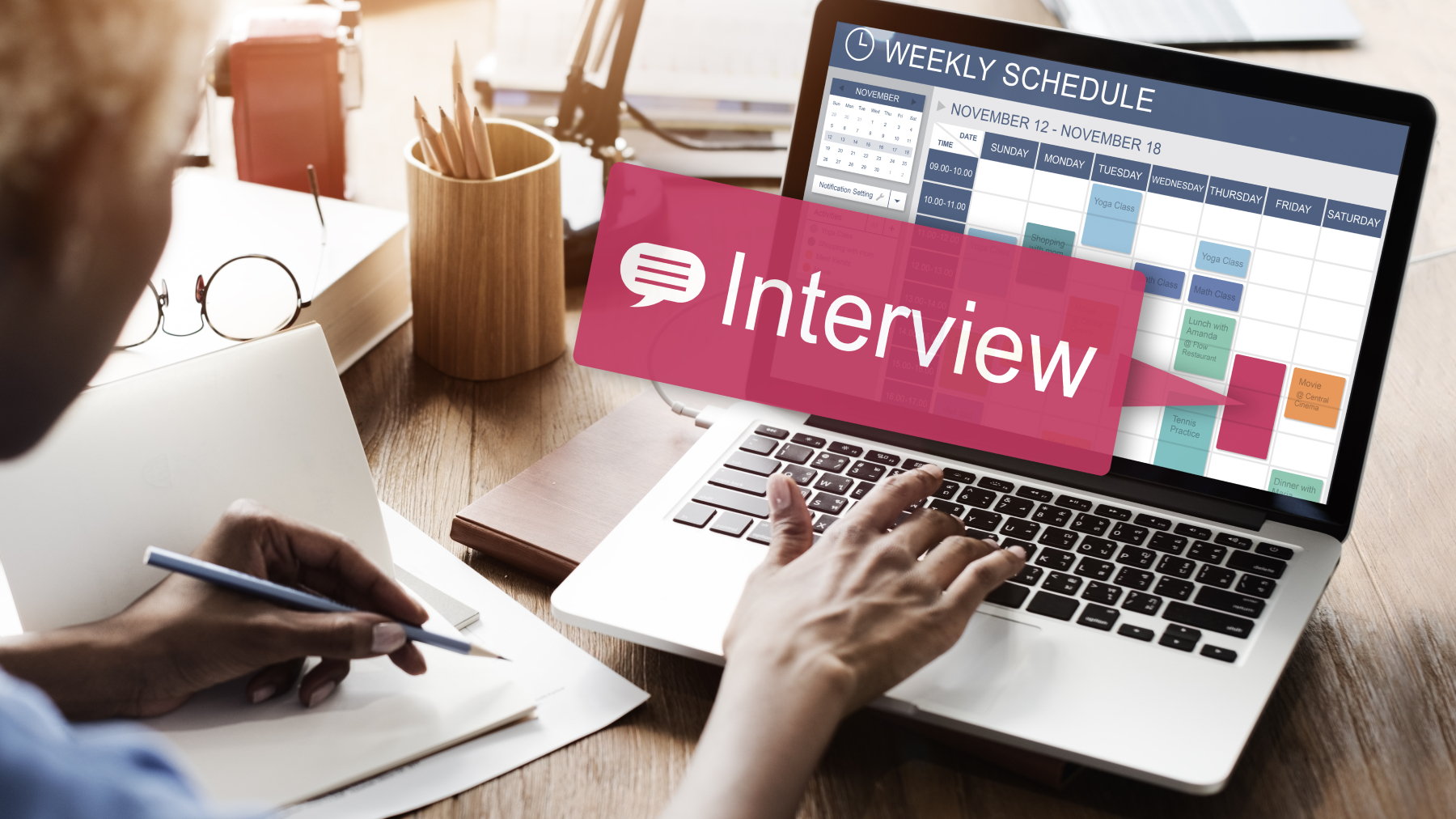
Once assessments identify strong candidates, platforms must streamline the next steps. Scheduling interviews and managing offers are core functions that save time for both HR staff and applicants.
The primary features often include:
- Calendar integration. Sync with internal scheduling tools to avoid conflicts.
- Automated invitations. Send reminders and confirmations without manual effort.
- Offer templates. Standardize documents for speed and accuracy.
- Status tracking. Monitor whether candidates accepted or declined offers.
From first interaction to final offer, the process stays organized and consistent, improving both candidate experience and recruiter efficiency.
Reporting and Analytics for HR Teams

Data collected during recruitment and training loses value without proper reporting tools. Analytics modules within gamification platforms turn raw results into actionable insights.
Reports can cover:
- Candidate performance. Strengths, weaknesses, and decision-making styles.
- Process efficiency. Time spent on each recruitment stage.
- Engagement metrics. How candidates respond to gamified tasks.
- HR team output. Productivity and workload distribution.
Comprehensive analytics empower managers to refine strategies. They can identify bottlenecks, compare hiring cycles, and evaluate training effectiveness. In practice, reporting tools not only support daily operations but also inform long-term planning and policy adjustments.
Additional Features That Enhance Efficiency
Core modules alone cannot cover all recruitment needs. Additional features expand the value of HR gamification platforms by improving collaboration, communication, and customization. They ensure the system adapts to diverse organizational requirements rather than forcing one standard process.
- Messenger integration. Platforms connect with tools like Slack or Microsoft Teams to simplify candidate updates and team discussions.
- Collaborative hiring. Multiple stakeholders can review candidate performance, add comments, and make decisions together.
- Personalization. Interfaces and workflows are adjusted for different roles, departments, or regions.
- Form builders. HR managers create tailored application forms and evaluation templates without external support.
- Troubleshooting tools. Built-in help systems resolve issues quickly and minimize interruptions.
Extra functionality also strengthens the candidate experience, which can improve acceptance rates and employer branding.
Cost of Developing an HR Gamification Platform
Building an HR gamification platform requires investment in multiple areas beyond coding. Costs depend on design complexity, technical requirements, and the level of customization. Organizations must also factor in testing, integration, and long-term support. Understanding the elements that shape budgets helps prevent hidden expenses and ensures realistic planning before development begins.
Factors That Influence Cost
Project costs vary depending on the resources allocated to each stage of development. A breakdown of common cost drivers helps organizations evaluate budgets more accurately.
| Factor | Description | Impact on Cost |
| UI/UX design | Wireframes, interfaces, and user flows that shape the platform’s usability. | Complex designs require more hours and increase cost. |
| Art and animation | Visual elements, 2D/3D assets, and interactive graphics that make gamified tasks engaging. | High-quality art raises expenses but improves candidate experience. |
| App architecture | Back-end systems, databases, and integration frameworks. | Scalable architecture costs more but ensures reliability. |
| Security | Data protection measures, compliance with GDPR or local regulations. | Stronger safeguards increase cost but protect sensitive information. |
| QA and testing | Functionality checks, load testing, and bug fixing. | Extensive QA improves stability but extends timelines and cost. |
| Game design input | Specialists define mechanics, scoring systems, and user progression. | Adds strategic value but requires dedicated expertise. |
Each factor contributes to the final budget. Choosing where to invest heavily depends on the organization’s priorities, such as user experience versus rapid deployment.
Estimated Price Ranges and ROI Expectations
Budgets for HR gamification platforms often fall between $50,000 and $200,000+. Smaller web-based systems with limited features remain closer to the lower end, while platforms with advanced visuals, integrations, and analytics rise significantly.
Return on investment comes from faster hiring, reduced turnover, and better alignment between employee skills and organizational needs. For example, cutting recruitment time by two weeks can offset a large portion of development costs in industries with high hiring volumes. Long-term ROI also grows when training modules decrease employee churn or improve performance.
Organizations planning such projects should weigh upfront expenses against measurable efficiency gains. A platform tailored to business goals not only recovers its cost but also contributes to consistent HR improvements over time.
Example of a Real HR Gamification Platform — Owiwi
Owiwi is a Greek HR platform designed to assess soft skills through gamified simulations. Program-Ace contributed to the project by delivering high-quality 2D and 3D art, animation, and interface design that supported the game mechanics and improved user interaction.
The result was a psychometric tool that combines validated psychology with engaging visuals to enhance recruitment. Owiwi HR platform demonstrates how gamification can transform candidate evaluation into a measurable and motivating process.
Overview of Owiwi and Its Purpose
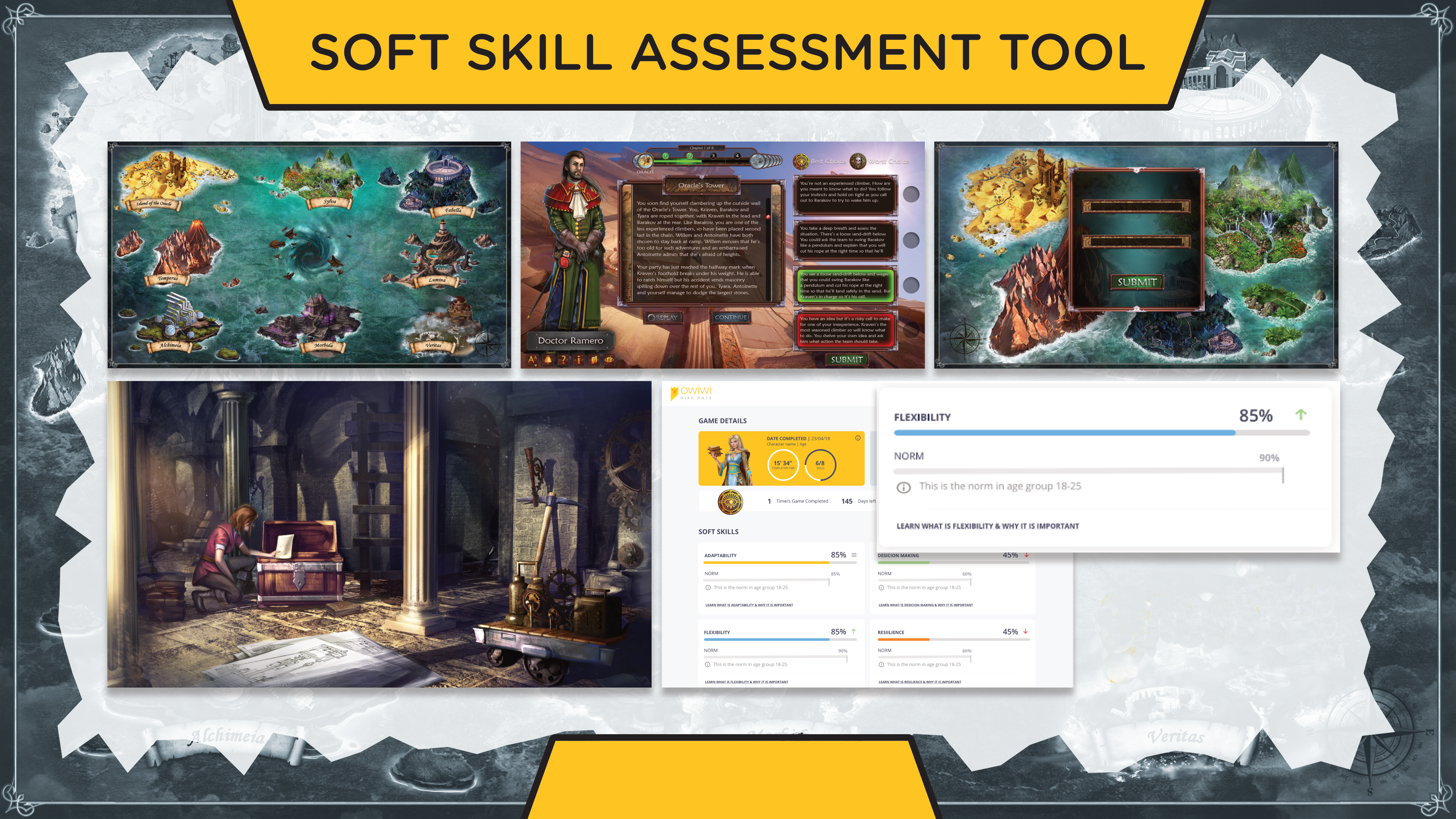
Owiwi was created as a self-service recruitment platform to simplify soft skills evaluation. The platform applies serious gaming to identify personality traits, decision-making patterns, and areas for improvement. By merging psychological research with narrative-driven experiences, Owiwi helps recruiters build complete profiles of applicants.
Program-Ace joined the project to provide design and visual development, ensuring that every interaction was paired with effective game mechanics. The purpose was not only to assess candidates accurately but also to provide them with an engaging and transparent experience.
How the Platform Works for Candidates and Recruiters
Candidates enter the platform and interact with narrative-based scenarios that replicate real workplace dilemmas. Each choice they make is recorded, analyzed, and used to create a detailed soft skills profile.
Recruiters receive automated reports that outline strengths, weaknesses, and behavioral tendencies, making selection more data driven. For applicants, the process feels less like a test and more like an interactive experience. For HR teams, it delivers structured insights without requiring extensive manual evaluation. The design ensures both parties gain measurable value from the same session.
Visual and Interactive Elements That Drive Engagement
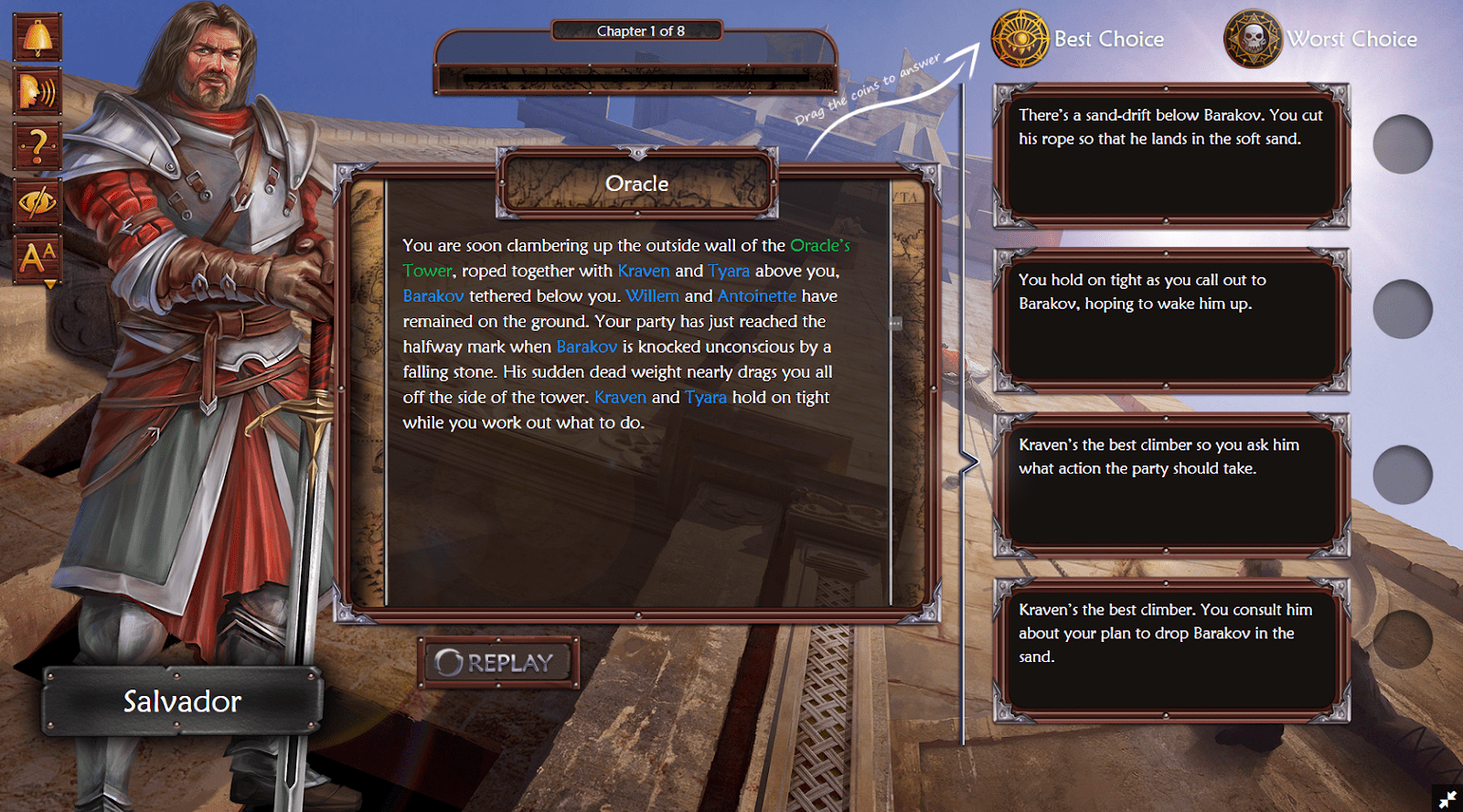
Owiwi's success relied heavily on visuals that supported game mechanics and improved immersion. Program-Ace delivered a range of assets and interface updates that elevated the experience.
- 2D and 3D art. Characters, environments, and illustrations created with 3DS Max, Maya, and Photoshop.
- Animations and VFX. Motion and effects were added through After Effects to make interactions dynamic.
- Intuitive interface. A user-friendly design that guided candidates smoothly through each step.
- Scenario variety. Multiple-choice dilemmas that reflected real workplace challenges.
- Consistency. Every visual was tied to assessment goals rather than added for aesthetics alone.
These elements ensured candidates stayed engaged, while recruiters received accurate data from realistic scenarios.
Outcomes and Advantages for Employers
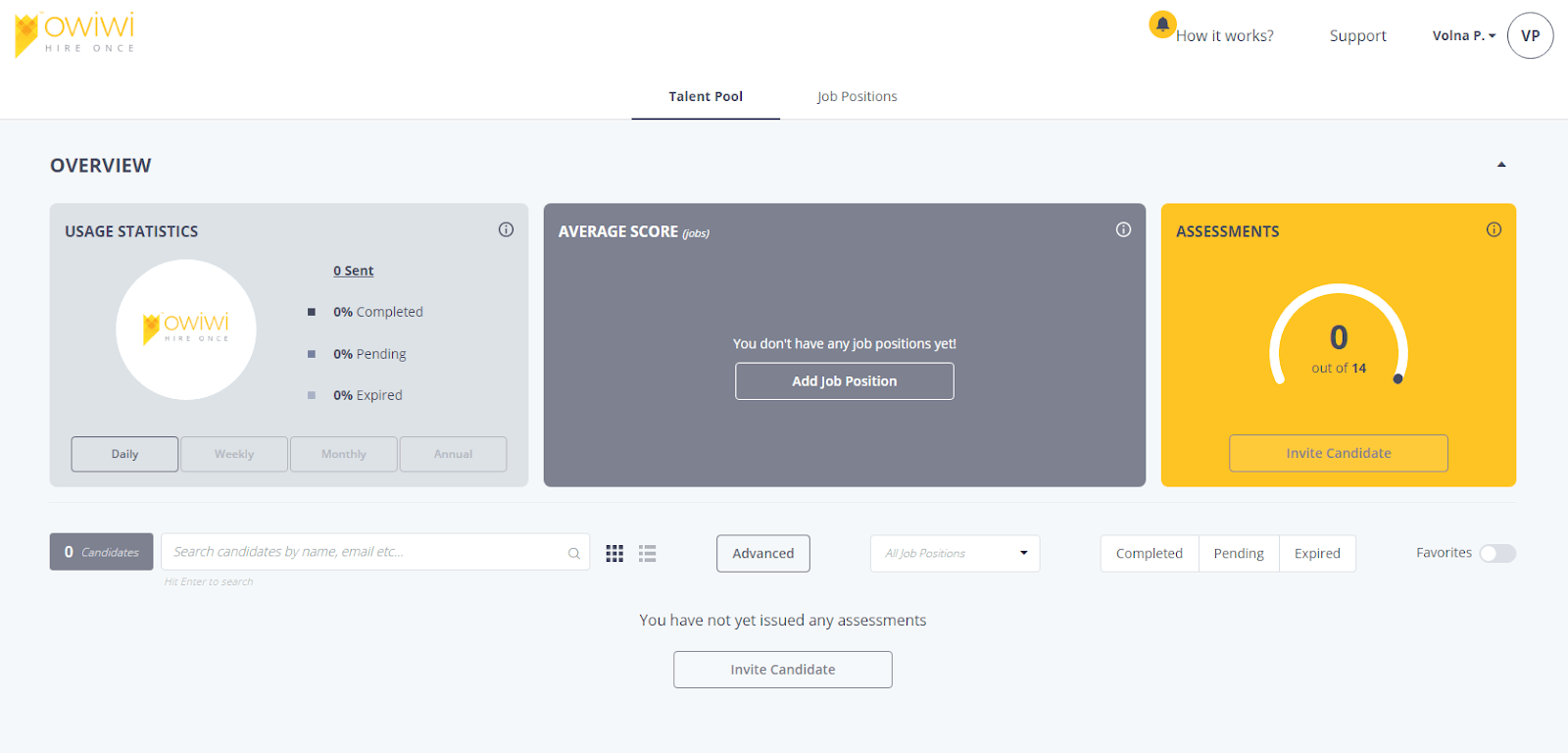
Employers adopting Owiwi gained measurable benefits that extended beyond improved candidate engagement. The platform's structure and visuals delivered precise business results.
- Reliable assessments. Psychometric reports highlighted behavioral traits and decision-making skills.
- Faster evaluation. Automated data reduced the time needed for manual candidate review.
- Stronger attraction. User interest grew by 150% due to appealing visuals and interactive design.
- Broader reach. Localized media raised interest among multinational corporations and SMEs, driving higher adoption.
- Improved branding. A modern recruitment process enhances an employer's reputation in competitive markets.
With these results, Owiwi proved how gamification can serve as a functional tool for recruitment rather than a short-term experiment.

Try Owiwi yourself
Challenges and Pitfalls in Building Gamification Platforms
Gamification brings measurable benefits, but development can fail if common pitfalls are ignored. Overly complex mechanics, weak technical planning, or irrelevant metrics can turn a promising tool into an underperforming system. HR managers need to understand how to make gamified training work without losing sight of practical objectives. Recognizing challenges early ensures the platform remains effective and delivers value.
Over-Gamification and Lack of Alignment with Goals
Excessive use of game mechanics often damages credibility. When a platform focuses on flashy visuals or endless scoring systems without linking them to business outcomes, users disengage. The key is to design mechanics that directly support recruitment or training objectives.
- Unclear purpose. Gamification built only to impress rarely produces measurable results.
- Unbalanced features. Too many rewards or levels may overshadow the actual assessment process.
- Misaligned incentives. Mechanics that reward speed but ignore accuracy can distort candidate evaluation.
Alignment with organizational goals must guide every design decision. Platforms that keep objectives clear improve both HR efficiency and user trust, while those chasing novelty risk losing value quickly.
Technical and Integration Issues
Gamification platforms often fail not because of poor concepts but due to weak technical foundations. Integrating the system into existing HR infrastructure can be complex and time-consuming.
- System compatibility. Platforms must work with applicant tracking systems, payroll tools, or HR databases already in use.
- Scalability. Without proper architecture, performance drops as more users interact with the system.
- Security. Sensitive candidate data requires strong protection and compliance with regulations such as GDPR.
- User access. Role-based permissions prevent errors and maintain confidentiality.
Each of these issues can derail adoption if overlooked. Careful planning during development ensures that the platform is reliable, secure, and adaptable to the organization's growth.
Measuring the Wrong Metrics
Gamification can generate large amounts of data, but not all metrics contribute to meaningful decisions. HR teams sometimes track activity levels without understanding whether the numbers reflect actual competence or potential.
- Vanity metrics. High participation rates do not always mean better candidate quality.
- Incomplete data. Focusing on single outcomes, such as task completion time, ignores communication or problem-solving ability.
- Misinterpreted results. Without context, data can lead to biased hiring decisions.
The solution is to define success criteria before development starts. Metrics must reflect both employee behavior and organizational goals. When measured correctly, gamified training produces actionable insights; when measured poorly, it creates confusion and undermines trust.
An Ultimate HR Gamification Platform with Program-Ace
Program-Ace offers comprehensive gamification development services that integrate technology, psychology, and design to facilitate HR transformation. As an innovative solutions integrator, the company delivers platforms that align with business goals while keeping candidates and employees engaged. Services include UI/UX design, game mechanics development, system integration, and analytics tailored for recruitment or training.
Program-Ace's expertise ensures that every feature is purposeful, measurable, and adaptable. Organizations seeking to modernize their HR processes can contact us to explore how a custom gamification platform can enhance recruitment accuracy, training efficiency, and long-term employee retention.

